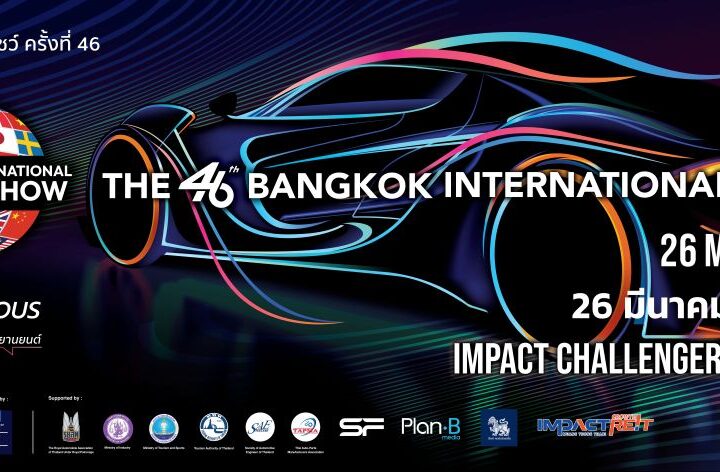
Companies in mature industries must continually implement new strategies to compete in today’s dynamic, global marketplace. Successful strategic programs require timely, cost effective execution of multiple, tactical projects that deliver specifics needed for strategic change. For companies facing fierce competition or fast-changing technologies and markets, being able to bring about this strategic change quickly and effectively is absolutely vital. This is where Project Success, Inc. (PSI) steps in. PSI’s proven and practical methodology helps organizations execute strategic projects successfully, even in today’s global environment where team members live and work in different countries, speak different native and/or technical languages and have different cultural backgrounds.
For a quarter-century, Project Success, Inc., formerly YCA (Young, Clark & Associates), has compiled an enviable record of achievement while assisting clients in planning and executing business-critical projects around the globe. This Atlanta-based provider of project management training, consulting, and systems development services boasts a blue-chip clientele in a wide range of industries including manufacturers and suppliers of aircraft, automobiles, electronics, engines, and heavy equipment. PSI also has significant international experience, specifically in low-cost countries.
At the heart of their success is The Project Success MethodSM — PSI’s proprietary project planning and control methodology that has been developed and refined in thousands of client projects during the firm’s 25 year existence. It is a practical, tightly integrated set of management processes by which project managers and their teams precisely define, thoroughly plan and persistently control their projects. The methodology has been “fire-tested” and has proven effective on virtually all types of projects regardless of size, scope, location, culture or industry.
Automotive Industries spoke to Clint Padgett, President of Project Success, Inc.
AI: What does your firm offer that would be of significant value to companies in the automotive industry?
CP: Put simply, we offer project success! More specifically, that means projects executed in accordance with quality expectations, on time, and within budget. Success to us is achieving all three, not just two of the three! This is critically important in mature industries such as this one.
AI: Can project success impact the bottom line?
CP: Absolutely. Well-performed projects do not end up in the “panic phase” where quality is sacrificed and costs increase. In the panic phase of a project the team has two dominant thoughts: “I don’t care what it costs; just get it done” and “I know this isn’t the level of quality we promised, but it will have to do”. Avoiding the panic phase results in reduced expenditures during the project and maintains quality thereby eliminating the need for rework. Additionally, in strategic situations, earlier project completion enables earlier realization of anticipated benefits. In product introduction, that’s big money!
AI: So how exactly does your firm help its clients achieve project success and therefore greater profitability?
CP: PSI helps our clients define, plan, and control projects. We provide training in our proprietary methodology and assist our clients in developing systems to support their project efforts.
AI: Why all the emphasis on projects?
CP: Projects are not business as usual, however almost everything new at a company involves a project. Development of new products, new systems, new processes and procurement/installation of new equipment are classic examples of projects. Projects require a different type of planning, different staffing, different reporting, and frequently leadership styles.
AI: So your company specializes in efficiency?
CP: No, we’re not efficiency experts or time management specialists trying to show clients how to get employees to deliver 12 hours of work in an eight hour work day. Our consulting practice only applies to project work. Actually, there are much greater financial returns associated with delivering strategic projects early or on time than creating more efficient employees. In fact, our firm has been a major contributor in saving clients in excess of ten million dollars on a single project.
AI: Aren’t most successful companies basically proficient in planning?
CP: As I mentioned, projects require a different type of planning than normal business planning. Most firms don’t seem to be very good at project planning. In practice, most organizations realize that something needs to be accomplished, but the team can’t agree exactly what the deliverables are. PSI helps solidify not only the what, but also the how, how long, who, and how much.
AI: What exactly is the Project Success Method and what makes it unique?
CP: The Project Success Method consists of three tightly integrated processes for defining, planning and controlling projects. The methodology employs a consensus-building approach that promotes team ownership of the project, the development of an actionable plan, team commitment to the plan, a disciplined approach to project control, and a sense of mutual accountability within the team.
The beauty of the methodology is that it requires neither the upheaval of your group nor extensive training in order to be successful. In fact, the methodology can be implemented in as little as five days on a simple project.
AI: Isn’t what you describe more commonly utilized in the construction industry? Will the same techniques really work in other applications?
CP: The methodology has been applied successfully to thousands of our clients’ projects over the last 25 years. Some of the most common types of projects are new product development/introduction, information technology development and implementation, process improvement, facility start-ups/relocations, major industrial maintenance, and marketing campaigns. The Project Success Method has also been applied to new business start-ups, mergers/acquisitions, public stock offerings, and other highly strategic initiatives. It has even been used to plan major international sporting events and motion picture production. The methodology is generic. We have never found a type of project to which it does not apply.
AI: Any specific automotive examples?
CP: We’ve helped clients plan and execute new machines/vehicles, engines to meet federal emissions requirements, enterprise-wide software implementation, development of major vehicle systems, facility renovation, business start-ups for auto dealerships, Six Sigma/Lean/SPC efforts, shop floor improvements, and marketing programs, just to name a few.
AI: Earlier you mentioned saving more than ten million dollars on a single project. What type of projects were those?
CP: I can give you two recent examples. One project associated enabling a client to deal directly with supplier factories in China, rather than using a Japanese middle man. The savings was reported to be $13 million in the 1st year alone with similar results expected in subsequent years. Another example involved a project completion that was earlier than the government imposed deadline which allowed the client to avoid paying the U.S. Government non-compliance penalties for engine emissions performance.
AI: How do you work with clients to get them up to speed using the Project Success Method?
CP: We use a three-phase approach, and we only ask the client to commit to one phase at a time.
We always begin with our two-day flagship course in which we present the principles, processes and techniques of the methodology. This is not the typical broad-brush project management training. Our course is highly intensive and focuses specifically on the proven, practical processes I described earlier.
After training, PSI immediately facilitates the application of the Project Success Method side-by-side with the client team to define, plan, and control the execution of one or more selected projects in the client’s organization. PSI’s associates provide mentoring and hands-on assistance to the client’s project managers and teams as they make the rapid transition from classroom learning to actual application. We ensure that the methodology is applied correctly and with discipline. As always, “Nothing succeeds like success.” By giving the client’s project teams a taste of success on a few well-selected projects, the commitment to using the Project Success Method is reinforced and begins spreading throughout the organization.
The third phase of our approach is developing and implementing the client’s Project Success System, which is the infrastructure that will support the ongoing application of the Project Success Method. This system includes both software and organizational elements. The Project Success Method is generic and applies to virtually all types of projects, but the Project Success System must be tailored to the characteristics of the client’s projects, organization, people, and competitive environment.
AI: Describe the size and strength of your firm.
CP: Our people are our greatest asset! PSI has more than twenty full-time professionals who live all over the U.S. and deliver services worldwide. Our associates have been engaged in more than 10,000 projects in 25 countries on six continents. PSI’s professional staff averages more than 21 years of work experience and 8 years of experience implementing and applying the Project Success Method. Also, fifty-two percent of our associates hold graduate degrees, mainly in engineering and business.
For further information on PSI and The Project Success Method please visit http://www.projectsuccess.com. To contact Clint directly, he can be reached at clint.padgett@projectsuccess.com or (678) 801-4500.
















More Stories
Bangkok International Motor Show 2025 – The Talk of Sensuous Automotive
Meet Rita Case – recipient of 2024 NAMAD Lifetime Achievement Award
Getac on AI’s transformative impact on automotive production and aftersales